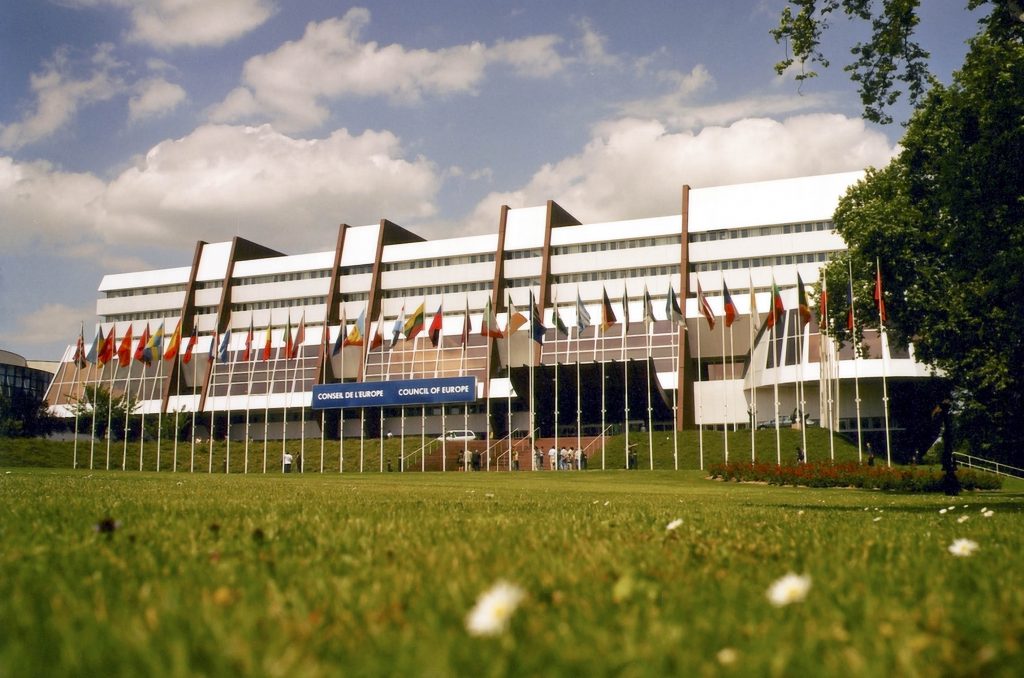 Ilaria Moratello is a student in her second year at the Master in European Studies at the IEE-ULB.
Ilaria Moratello is a student in her second year at the Master in European Studies at the IEE-ULB.
The Venice Commission stands to protect fundamental freedoms, assisted in this task by other bodies – such as the European Court of Human Rights, or the Court of Justice of the European Union – that share the same values.
Since its establishment in 1990, it has progressively acquired more visibility in the field of democracy, human rights and the rule of law, given the level of expertise of its members and the high scientific value of its studies and opinions.
This development explains why the body is now considered an actor of a certain significance, whose suggestions are necessary for ensuring the respect of the fundamental principles laid down in the European Convention on Human Rights.
According to Article 1(1) of the revised Statute of the Commission, its work consists mainly in the provision of an advisory service in different fields of law, aimed at building and reinforcing the efficiency of Member States’ democratic institutions, as well as diffusing a mutual understanding of the principle of the rule of law. Regarding this last point, the contribution of the Commission has been particularly noteworthy, inasmuch as it was able to provide and operationalise a definition for the rule of law, a notion that has always been rather indefinite and vague even though generally recognized as being one of the fundamental tenets of the European legal system and the European constitutional heritage as a whole.
Setting a precedent in the definition of the Rule of Law
Upon request of the Parliamentary Assembly of the Council of Europe, the Venice Commission issued a report in 2011 where it acknowledged the existence of a consensus on six formal and substantial features of the rule of law: legality, legal certainty, prohibition of arbitrariness, access to justice before independent and impartial courts, respect for human rights, non-discrimination and equality before the law. This comprehensive definition has proved particularly successful, starting quickly to be adopted by a great number of different actors; in 2014 the European Commission, for instance, built on it its Communication on ‘A new EU Framework to strengthen the Rule of Law’.
The role of the Commission has not been limited to providing an abstract definition of the concept of the rule of law: it was also able to operationalise the notion through a ‘Rule of Law Checklist’, where each of the above-mentioned essential elements is broken down in several sub-parameters. The aim of the Checklist is to supply a practical tool for the assessment of the rule of law status in each Member State; it could be used by national Parliaments and other State authorities, as well as by civil society and international organisations.
Moreover, its benchmarks have been designed for assessing both legal and practical standards, since the existence of good legislation does not in itself ensure proper implementation of it. Although this Checklist has had the praised purpose to measure – to a certain extent – the level of compliance with the rule of law through the description of precise benchmarks based on identified European and international standards, it has at the same time aroused numerous criticisms, mainly related to the risk of making the notion ‘too substantial’ and thus too uncertain.
In addition, any framework that has the ambition to provide a qualitative assessment of the ‘health state’ of a country should not neglect the existing diversity of European legal systems.
Despite those flaws, this Checklist remains a powerful and innovative instrument, and represents an important step forward in the endeavour of spreading the awareness of the rule of law.
A wide range of tools for action
At last, the Venice Commission has the power of issuing opinions and recommendations of a non-binding and not enforceable nature: they belong, therefore, to the category of the so-called ‘soft instruments’. These devices present a lower degree of legal formality, thus allowing more flexibility to the Commission in the provision of opinions, as well as in its working method. This ‘elastic’ character of the Venice Commission gives it the chance to respond promptly to threats to the rule of law and to suit the requirements of a specific country requesting advice.
In recent years, the Commission has provided a number of opinions regarding controversial laws adopted by some EU Member States (notably Romania, Hungary and Poland), seizing the opportunity for simultaneously expressing its concerns about the rise of ‘illiberal democracies’ in Central and Eastern Europe. The effects of opinions could be seen on a variety of levels, first and foremost in the conclusions drafted by the countries to which these recommendations are addressed; secondly, in the reactions aroused in other States and institutions that are sensitive to the specific topics covered by the opinion, though not being the direct recipients; lastly, in decisions taken by the Council of Europe’s bodies, the ECtHR, and EU institutions (mainly the European Commission, the European Parliament and the European Court of Justice).
The work of the Venice Commission seems to exert influence probably on a number of other international organisations and consultative bodies. Media, NGOs, politicians – especially in Eastern Europe – pay great attention to the Commission’s work, and frequently report its opinions, thus testifying the level of prestige that the Commission enjoys also in civil society.
This paper was written in the framework of the Jean Monnet Module Rule of law and mutual trust in global and European governance coordinated by Prof. Ramona Coman 599377-EPP-1-2018-1-BE-EPPJMO-MODULE.




